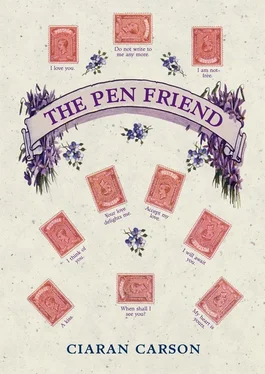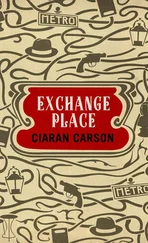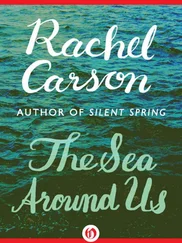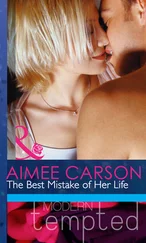And you, I suppose you’re going to change the world? I said. Nobody changes the world, you said, history isn’t a matter of personalities, of kings and statesmen making the big decisions, history’s the manufacture of consent. That’s what MO2 does, we’re in the Chinese whispers game. But at least I’ve no illusions about it. I consent to it. And I take pleasure in what I do, because I like to create beautiful things, you said. Isn’t that what I do? I said. No, you said, you think your pleasure is morality, you think you’re better than the next person because you can appreciate something they can’t. And you’ve made a picture of me, Angel, you carry it around in your mind like an icon, and for all I know you might adore it, but it’s the wrong picture, Gabriel, it’s not me. It’s a kind of fake, you said, and I’m tired of tramping around galleries looking at pictures with you, be they real or fake, and with that you turned on your heel and left.
We made it up a little afterwards, when I came back to the hotel room and found you were wearing L’Heure Bleue , as if to remind me of our time in Paris, or to remind yourself of our time in Paris. But it began again in Belfast, or rather it ended in Belfast. We’d gone out for dinner, to Restaurant 77, the best restaurant in town, it was your idea. The condemned man’s last meal. Afterwards, we were, as I thought, about to get a taxi to your place when you said, I think we should stop seeing each other for a while. What do you mean, stop seeing each other? I said. It was a circumstance I had never envisaged. Oh, I knew we had had our difficulties, but they consisted of mere ideological differences, easily resolved, and this struck me like a bolt from the blue. You were silent for a moment. What do you mean, stop seeing each other? I said again, less confidently this time. Yes, Angel, maybe if we stop seeing each other we’ll learn to see each other better. We both need a little time and space away from each other, you said.
I felt as if my world had turned upside down. You can’t mean it, Nina, I said. You mean everything to me, I said. I can’t live without you, I said. How can you say that, I said, after all we’ve done together, after all we’ve said to each other, you said you loved me, I said. We say a lot of things, Angel, and they’re true for when we say them, but things change, you said. But it’s not over, is it, Nina? It can’t be over, you’ll come back to me, won’t you? Give me some hope that you’ll come back, Nina, I said. Oh, Angel, I don’t know my own mind at the moment, I live in hope as much as you, don’t press me too hard, you said. And I said more, and you said more, and I could not change your mind. I have to leave now, you said. You’ll be in touch? I said. I’ll write, you said. You kissed me gently on the cheek, and left me.
When I woke the next morning I thought it had all been a bad dream, and when I realised you had indeed said what you said, I felt bereaved. I had not felt like this since the death of my mother, nor would I feel like that again until the death of my father. And, remembering that time, I am writing now with a funereal black Waverley pen made in the 1920s, whose unusual spear-shaped nib has a teardrop vent-hole. Like the Dutch pens, the Merlin and the CIBA that I used to describe our happier times, the Waverley had never been inked until it came to my hands. It is like new, this pen that is almost as old as my father was when he died.
You remember my father, Nina. He must have been in your mind when I saw you for the last time. It was Saturday 30th June 1984, a week after our last meal together; I had arranged to meet him for a drink after his Esperanto class in The Compass, and I had just stepped from the sunlight of High Street into that maze of alleyways that lies between it and the Law Courts, when you stepped out from a dark colonnade, and said, Angel, Gabriel. My heart leapt. Nina, I said. And we stood awkwardly for some long seconds. Well, fancy meeting you like this, you said. Yes, fancy that, I said. How are you, Gabriel? you said. How do you think I am, Nina? I said. Oh, don’t be hard on me, Gabriel, I’ve thought about little else since that night, I’ve thought about my whole life, what I’m doing, or what I’m supposed to be doing, you must give me some time, you said, and you proceeded to tell me an elaborate story of how your boss, Callaghan, had taken you to lunch at Restaurant 77 one day — isn’t that an irony? you said ruefully — and had suggested to you that perhaps it was time for a change of scene, that Eastern Europe was the coming thing now, that you had done very well in Belfast, but that maybe Warsaw would suit your talents better at this particular time, and my heart gave a lurch as I heard this. You mean you might be leaving altogether? I said. Oh, I don’t know any more, Gabriel, I don’t know what I’m doing, you said. And then I saw you look at your watch, and you said, Gabriel, I really must be going. I’ll be in touch, I promise, I will write, and you left.
I looked at my watch; I had arranged to meet my father at five o’clock, and it was now five past. And then I heard an almighty explosion. You know the rest, Nina. You must have pictured me running towards The Compass Bar, standing aghast before the smoking rubble, being restrained by the police and army, waiting for what seemed like an eternity before I saw my father being carried out, weeping tears of relief when I saw that he was still alive, though I could see that one of his legs was shattered. As it turned out, they had to amputate.
My father managed well enough; even when he suffered phantom limb syndrome, he used to joke about it, or perhaps it wasn’t a joke. After Nelson lost his arm at the Battle of Santa Cruz de Tenerife, said my father, he could feel fingers digging into the missing limb, and Nelson thought this was direct evidence for the existence of the soul. And I never thought I’d find myself agreeing with an English admiral, said my father. What hurt him more was the thought that the cause of Esperanto had been directly attacked by the bomb. It was just like the persecution of Esperantists in Nazi Germany and Soviet Russia, he said. There were dark forces abroad, said my father, who would do anything to keep the Irish people apart from one another, and he would quote from his beloved Zamenhof. When I was still a child in the town of Bialystok, said Zamenhof, I gazed with sorrow on the mutual hostility which divided the people of the same land and the same town. And I dreamed then that after some years everything would be changed for the better. And the years have passed; and instead of my beautiful dream I have seen a terrible reality. In the streets of my unhappy town savages armed with hatchets and pickaxe handles have flung themselves at those who practise another religion, or speak a different language to themselves. For there will always be those whose interests are to foster such hatred, said my father.
No one ever claimed responsibility for The Compass Bar bombing that killed five people, three Catholics and two Protestants. Some said it was a rogue Republican element. Some said it was a rogue Loyalist element. And quite a lot of people said that whoever was responsible, it could not have happened without the collusion of rogue elements within the security forces, whether actively or by omission, that it had been sanctioned at some level in the maze of clandestine operations that lay behind official government policy.
It took me some days to put two and two together. Until then, I’d thought of MO2 as just another of those well-meaning and ultimately pointless local business development agencies. But the more I thought of it, the more it seemed to me that you must have known, that MO2 had prior knowledge. You knew I met my father most Saturdays after his class, you knew my movements, you knew how to intercept and delay me. And if that were so, you saved me, but you did not save the others, and I could not forgive you for that.
Читать дальше












